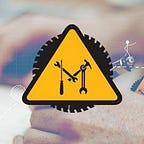Plastic Safari
Plastic safari was born out of the need to educate consumers especially the ones with the responsibility to safeguard our future ‘the gen-next’ about waste, err resource management. You read that right, it’s not just waste management. With plastic safari we are not just indulging in word play but using skills and methods to lend a new lease of life to the greatest invention of all times in packaging – Plastic
But why do this?
India generates about 15,342 tons of plastic waste per day which is equivalent to 2,789 African elephants worth of weight ‘per day’ and unlike organic waste plastics never leave town. It only degrades into smaller fragments over a period of 450 years making them next to invincible. Now before we jump into knowing more about PlasticSafari, one last fact figure because we found it compelling to share.
In 1950 the worlds population of 2.5billion produced 1.5million tons of plastic waste. In 2016? – a global population of more than 7billion produced over 320million tons of plastic waste. This is set to double by 2034. We are out of elephant puns. Siri-ously.
So what is this Plastic safari all about?
It’s an initiative to generate awareness about waste management/segregation among children, the drivers of behaviour change in households. Plastic safari comprises of a brief curriculum followed by a fun demonstration. The curriculum is developed by Academy of Earth Sustainability, the knowledge partners where children are made aware about the situation. The demonstration is a set-up assembled within a tempo. The motto of the demonstration is as catchy as the jingle in Daft Punks technologic. It goes like – wash it-dry it-shred it-extrude it- 3D print it. technologic? Technologic.
Here are some photos of the Plastic Safari in action.
So what happens in the demonstration? Nothing less than magic. The students witness transformation. First things first, the plastic waste is washed to get rid of dirt, then it’s dried using the dryer. Next in line is the shredder where the plastic is shredded into smaller bits for the extruder. The extruded filament is then fed into the 3D printer for anyone to create objects of their liking.
This concept for recycling plastic is an open source initiative refined by Precious Plastic – a commutnity built to tackle plastic waste pollution from the bottom. It comprises of a linear process for transforming plastic from waste to something delightful/utilitarian depending on the creativity of the individual. The beauty of the plastic recycling lab on wheels is that it allows ‘you’ to be a part of the transformation and in the process it makes you aware of the bigger picture. The plastic recycling lab was built by maker’s at the Maker’s Asylum.
The impact?
So far, Plastic Safari has reached out to 4,500 students across schools in and around Mumbai. And counting. Not just that, the initiative has set in motion a partnership between diverse organisations including HUL, XYNTEO, Maker’s Asylum, Academy of Earth Sustainability, and Raddi Connect. The Plastic Safari is more than just a project, it’s a model for innumerable such initiatives towards building a sustainable society and a responsible consumer.
Here are some behind the scene photos.
To all the makers who played a role in the making of Plastic Safari.
Satyam Shukla, Rohan Shah, Suvesha Chandrasekaran, Anool Mahidharia, Zarvan Elavia, Johan Pais, Vineeth Nair, Darshan Shah, Altaf Bhai, Achakunju, Joshua Rodrigues, Nitish Bhaskaran, Rushad Damania, Richa Shrivastava, Vaibhav Chhabra.
Come see the Maker Auto or visit the next school with us. Want to work on a project? Write to us on info@makersasylum.com
